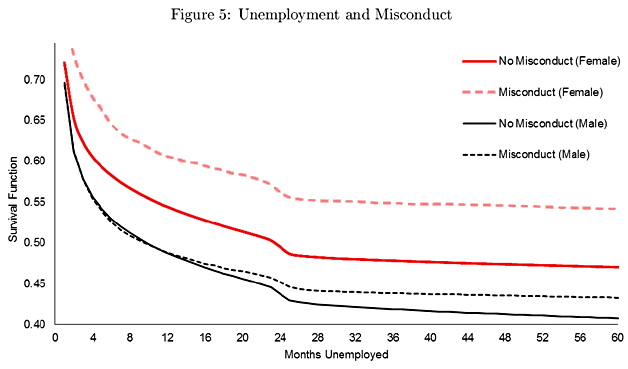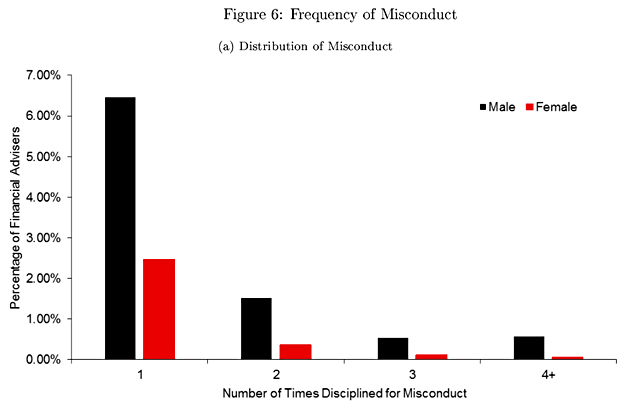In a new study, three NBER researchers looked at the results of misconduct in the financial industry. Their conclusions were stark:
We document large and pervasive differences in the treatment of male and female advisers. Female financial advisers face more severe consequences at both the firm and industry level for engaging in misconduct relative to male advisers. While male advisers are more than two times as likely to engage in misconduct, female advisers are 20% more likely to be fired for engaging in misconduct. Female advisers are also 30% less likely to find new employment and face longer unemployment spells as a result of misconduct.
Firms may find it optimal to punish women more severely if female advisers engage in more costly misconduct or if female employees are less costly to replace. The empirical evidence suggests the exact opposite. Male advisers tend to engage in more costly misconduct and male advisers are twice as likely to be repeat offenders.
Here’s a remarkable chart from their paper about how often financial advisors get fired and stay fired:

It’s not just that women don’t survive as long as men even though they appear to be equally productive. Women with no misconduct don’t survive as long as men with misconduct on their record. And that’s despite the fact that men engage in far more misconduct than women and are far more likely to be repeat offenders:

Finance is still a testosterone-fueled industry. Maybe it would be a safer one if we changed that.















